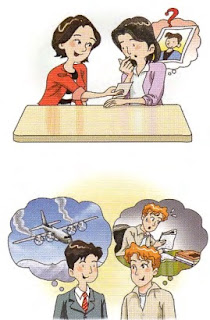가: 정말 이 사람을 모르세요?
So you don’t really know who that person is?
나: 네, 저는 그 사람 이름조차 몰라요.
Nope. I don’t even know his name.
가: 비행기 사고가 났다는 뉴스 들었어요?
Did you hear the news about the plane accident?
나: 아니요, 요즘에 너무 바쁘니까 인터넷 뉴스조차 볼 시간이 없어요.
No, I’ve been so busy lately that I don’t even have time to see the news on the internet.
This expression is used to express “not only others but also the most primary one” Generally, it refers to extreme situations that the speaker either did not expect or could not anticipate.

• 엄마조차 저를 못 믿으시는 거예요?
(Are you saying that) even you (my own mother) don’t believe me?
• 더운 날씨에 에어컨조차 고장이 나 버려서 정말 죽겠어요.
Even the air conditioner has broken down in this heat. It’s unbearable.
• 너무 슬프면 눈물조차 안 나오는 경우도 있어요.
Sometimes something can be so sad that tears don’t even flow.
1. This expression sounds most natural when used with negative statements. It can therefore sound awkward if used in positive situations.
• 세주 씨는 한글조차 읽어요. (X)
->세주 씨는 한글조차 못 읽어요. (〇)
2. The expressions 까지 and 도 can be substituted for 조차. However, it should be noted that 조차 carries the added nuance of “the worst possible case”.
• 더운데 바람까지 안 부네요.
= 더운데 바람도 안 부네요.
= 더운데 바람조차 안 부네요.
3. This expression is often used together with -은/는커녕, which indicates the negation of not only one thing but also something else on an even more telling, or serious level.
• 우리 엄마는 해외여행은커녕 제주도조차 못 가 보셨어요.
Our mother has never even traveled to Jeju Island, let alone overseas.
• 책을 읽기는커녕 신문조차 못 볼 때가 많아요.
There are times when I can’t even read the newspaper, not to mention books.
4. When used together with a verb, the form -(으)ㄹ 수조차 없어요 is used.
• 다리가 너무 아파서 일어설 수조차 없어요.
I can’t even stand since my legs hurt very much.
• 제 조카는 5살인데도 제가 안을 수조차 없을 정도로 아주 커요.
Even though my nephew is just a 5-year-old kid, he’s so big that I cannot even hold him.
01 -(으)ㄹ 뿐만 아니라
02 -(으)ㄴ/는 데다가
03 조차
04 만 해도
>> Full of Intermediate grammar: Click here

